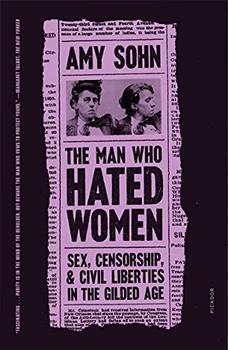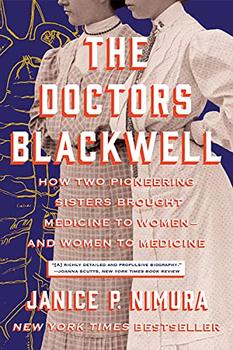Summary | Excerpt | Reading Guide | Reviews | Beyond the book | Read-Alikes | Genres & Themes | Author Bio

The Great Fight to Win the Vote
by Elaine WeissMany United States citizens take the right to vote for granted, so much so, in fact, that less than 60% of the eligible population cast a ballot in the 2016 presidential election. Voting rights continues to be a hot-button issue today and has been so for a while. Women, for example, weren't permitted to take part in the democratic process until the ratification of the Nineteenth Amendment to the United States Constitution on August 18, 1920. The Amendment states: "The right of citizens of the United States to vote shall not be denied or abridged by the United States or by any State on account of sex. Congress shall have power to enforce this article by appropriate legislation."
Elaine Weiss's excellent account of the fight for female suffrage, The Woman's Hour, recounts the furious political battle that was waged in Tennessee (the 36th state to pass the act and last state needed for ratification) in the weeks leading up to this pivotal moment in history.
We now, nearly 100 years on, know that the Nineteenth Amendment did ultimately pass, but Weiss retains an element of suspense in her narrative. She keeps readers on the edge of their seats as she outlines how very close the amendment came to being defeated. Southern states almost universally rejected it or refused to bring it to a vote in state legislatures, and passage in Tennessee hung by a thread.
Between chapters taking place in the summer of 1920, the author seamlessly inserts narrative about the roots of the suffrage movement (see Beyond the Book). It took 70 years of political debate and maneuvering before women were allowed to vote, and those who first raised the issue such as Susan B. Anthony and Elizabeth Cady Stanton did not live to see the amendment's passage. Although the Nineteenth Amendment was introduced in Congress in 1878 it wasn't sent to the states for ratification for another forty years.
The author discusses the many different "political, corporate and ideological adversaries intent upon stopping the Nineteenth Amendment"—including the powerful Southern Women's League for the Rejection of the Susan B. Anthony Amendment who felt it "mocked the plan of the Creator, undermined women's purity and the noble chivalry of men, and threatened the home and family."
Weiss also points out the racial element to the debate: Giving white women the right to vote also meant giving it to black women, a concept which many in the South found abhorrent. Even infighting between the two strongest pro-suffrage women's groups threatened passage, with men using the disagreements as evidence women were ill-suited to public debate. While all this information could very well have been dry, Weiss writes about events so vividly that the book seems more like a political thriller than history.
I particularly enjoyed the way Weiss placed the culminating vote in historical context, clearly outlining the political and social factors that made the time right to advance the amendment, but also made its passage questionable. For example, women's participation in World War I had many rethinking their perceptions of female capabilities; on the other hand, textile manufacturers didn't want women to have a say in government out of fear they'd help enact child labor laws, thereby impacting their profits.
Weiss's writing is compelling and her subject inspiring. In spite of the fact that the culmination of these events took place nearly a century ago, they continue to be relevant today. As the author states, "[T]he story's compelling themes—power and political will, race and gender equality, states' rights and voting rights, and corporate influence in politics—remain urgent, present-day concerns." I highly recommend The Woman's Hour to anyone with an interest in history. Book groups in particular will find much to discuss within its pages.
![]() This review was originally published in The BookBrowse Review in March 2018, and has been updated for the
March 2019 edition.
Click here to go to this issue.
This review was originally published in The BookBrowse Review in March 2018, and has been updated for the
March 2019 edition.
Click here to go to this issue.

If you liked The Woman's Hour, try these:

by Amy Sohn
Published 2022
The New York Times–bestselling author Amy Sohn presents a narrative history of Anthony Comstock, anti-vice activist and U.S. Postal Inspector, and the remarkable women who opposed his war on women's rights at the turn of the twentieth century.

by Janice P. Nimura
Published 2022
Elizabeth Blackwell believed from an early age that she was destined for a mission beyond the scope of "ordinary" womanhood.
In war there are no unwounded soldiers
Click Here to find out who said this, as well as discovering other famous literary quotes!
Your guide toexceptional books
BookBrowse seeks out and recommends the best in contemporary fiction and nonfiction—books that not only engage and entertain but also deepen our understanding of ourselves and the world around us.